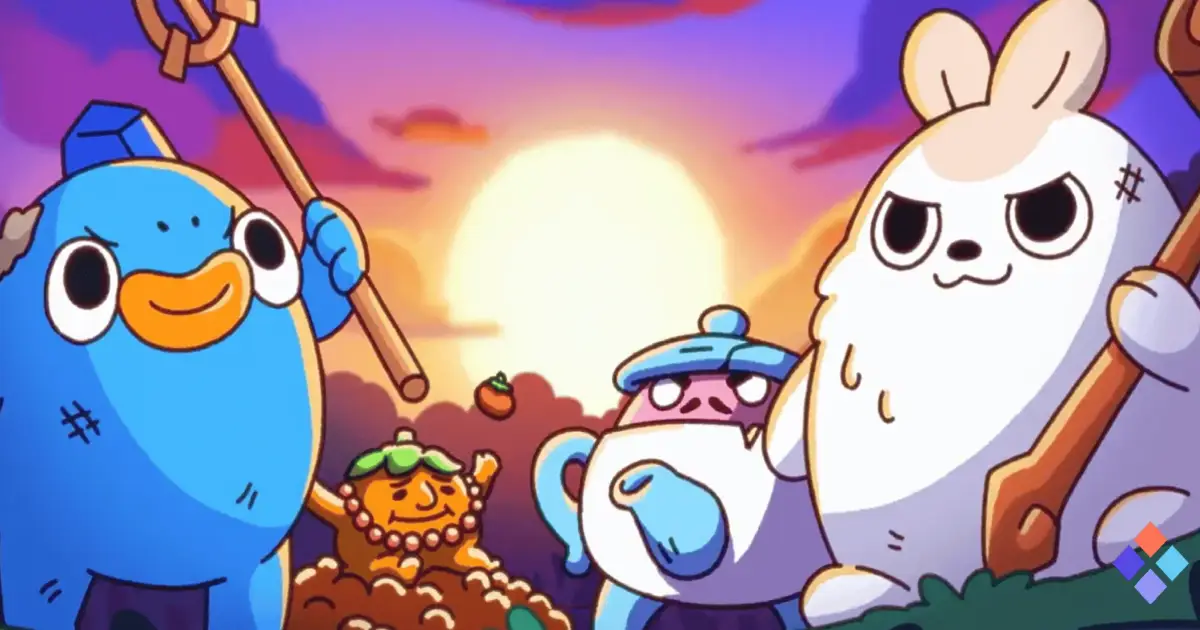As the web3 gaming revolution gains momentum, Moku’s recently unveiled trailer for *Super Battle Moki* has generated a fair amount of buzz. However, excitement is rapidly tempered by the game’s upcoming closed beta phase, which is set to favor only Moki Genesis NFT holders. While it’s natural for developers to prioritize loyal supporters, limiting accessibility raises significant concerns. Not everyone can afford the steep price of entry into the NFT sphere. By closing off the beta, Moku risks alienating potential players who could have contributed valuable feedback and created a more robust gaming experience. This elitism contradicts the foundational values of decentralization and inclusivity that the web3 community purports to champion.
Gameplay Depth: A Double-Edged Sword
Moku’s approach to gameplay, involving the assembly of tamakins—adorable, yet uniquely skilled creatures—offers a charming premise. That said, the promise of layered strategic depth may also lead players into a quagmire of complexity. The game grapples with the challenge of striking a balance between accessibility for casual gamers and the intricate tactics that dedicated players crave. This push-and-pull might result in a convoluted experience where players find themselves overwhelmed rather than engaged. It’s hard to shake the feeling that amidst the bold aspirations for engaging gameplay, the developers might be setting themselves up for disappointment.
The Risky Business of “Risk Run”
The introduction of a high-risk “risk run” format sounds promising in theory—players stake their progress for in-game rewards—but this could devolve into a frustrating gamble rather than an enjoyable gameplay mode. Moku’s ambition to integrate stakes into its gaming ecosystem may inadvertently promote a predatory model rather than encouraging healthy competition. In an era where gaming addiction is increasingly acknowledged, adding financial stakes could raise ethical questions. It is essential to recognize that games should primarily serve as a source of entertainment, not anxiety.
Strategic Meme Reserve: Gimmick or Genuine Utility?
While Moku’s rollout of the Strategic Meme Reserve and its other ecosystem updates aims to create excitement, the true effectiveness of these features remains questionable. The notion that rewards generated from one aspect of the ecosystem would support others sounds laudable, yet it feels more like a clever marketing gimmick than a substantial game-changer. The integration with various projects may result in fragmentation rather than the unified gaming experience that players seek. Will these developments materially affect the gameplay or will they simply serve the developers’ ambition to appear cutting-edge?
The Uncertain Future of Moki Pochi
Lastly, the revival of Moki Pochi with a new PvP Attack mode leaves one with mixed feelings. The promise of accessible play via web and Discord may initially seem inviting, but can we trust that this new mode will not lead to the same pitfalls already visible in other offerings? The early access and subsequent playtest seem tantalizing, but how will the community respond? Given that prior offerings from Moku have drawn both praise and criticism, optimism should be tempered with skepticism.
While *Super Battle Moki* offers promising elements, the road ahead is fraught with potential discontent. Market inclusion, balanced gameplay, sound mechanics, and ethical considerations must be at the forefront as Moku strides into the web3 landscape. Will they rise to the occasion, or will they falter, leaving fans disillusioned? Time will tell.

